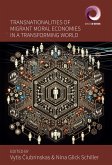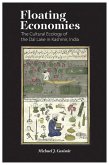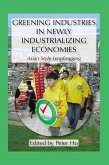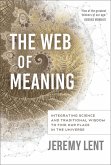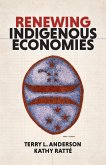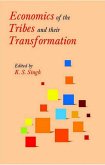In Europe and North America Muslims are often represented in conflict with modernity-but what could be more modern than motivational programs that represent Islamic practice as conducive to business success and personal growth? Daromir Rudnyckyj's innovative and surprising book challenges widespread assumptions about contemporary Islam by showing how moderate Muslims in Southeast Asia are reinterpreting Islam not to reject modernity but to create a "spiritual economy" consisting of practices conducive to globalization.
Drawing on more than two years of research in Indonesia, most of which took place at state-owned Krakatau Steel, Rudnyckyj shows how self-styled "spiritual reformers" seek to enhance the Islamic piety of workers across Southeast Asia and beyond. Deploying vivid description and a keen ethnographic sensibility, Rudnyckyj depicts a program called Emotional and Spiritual Quotient (ESQ) training that reconfigures Islamic practice and history to make the religion compatible with principles for corporate success found in Euro-American management texts, self-help manuals, and life-coaching sessions. The prophet Muhammad is represented as a model for a corporate CEO and the five pillars of Islam as directives for self-discipline, personal responsibility, and achieving "win-win" solutions.
Spiritual Economies reveals how capitalism and religion are converging in Indonesia and other parts of the developing and developed world. Rudnyckyj offers an alternative to the commonly held view that religious practice serves as a refuge from or means of resistance against modernization and neoliberalism. Moreover, his innovative approach charts new avenues for future research on globalization, religion, and the predicaments of modern life.
Drawing on more than two years of research in Indonesia, most of which took place at state-owned Krakatau Steel, Rudnyckyj shows how self-styled "spiritual reformers" seek to enhance the Islamic piety of workers across Southeast Asia and beyond. Deploying vivid description and a keen ethnographic sensibility, Rudnyckyj depicts a program called Emotional and Spiritual Quotient (ESQ) training that reconfigures Islamic practice and history to make the religion compatible with principles for corporate success found in Euro-American management texts, self-help manuals, and life-coaching sessions. The prophet Muhammad is represented as a model for a corporate CEO and the five pillars of Islam as directives for self-discipline, personal responsibility, and achieving "win-win" solutions.
Spiritual Economies reveals how capitalism and religion are converging in Indonesia and other parts of the developing and developed world. Rudnyckyj offers an alternative to the commonly held view that religious practice serves as a refuge from or means of resistance against modernization and neoliberalism. Moreover, his innovative approach charts new avenues for future research on globalization, religion, and the predicaments of modern life.
Dieser Download kann aus rechtlichen Gründen nur mit Rechnungsadresse in A, D ausgeliefert werden.



